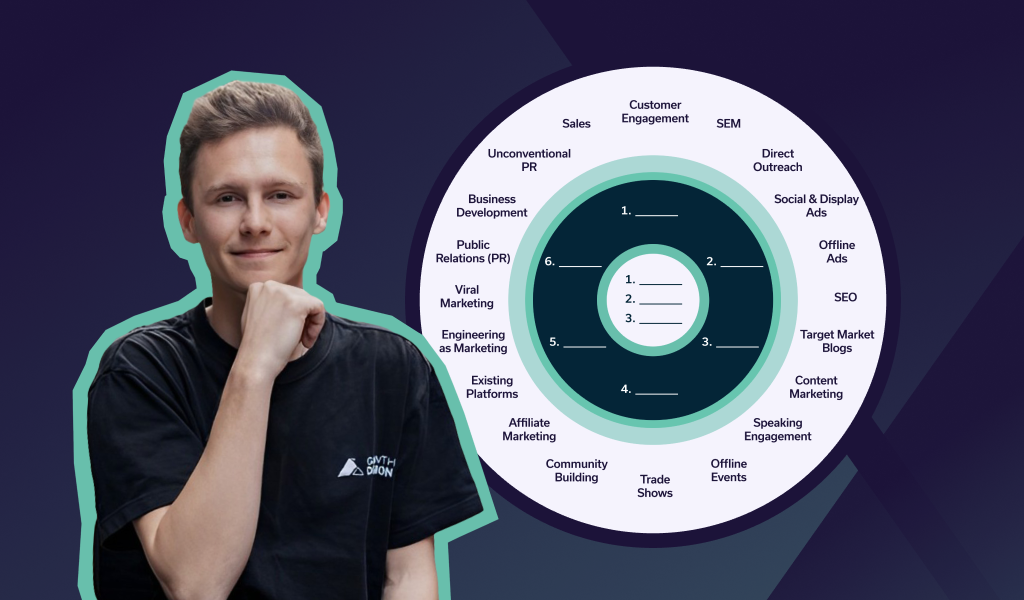The concept of a growth mindset has gained significant attention. This article aims to delve into the origins, fundamental principles, and impact of a growth mindset on learning and personal development. By understanding this concept, we can unlock our potential and overcome obstacles that stand in the way of our progress.
The Origins of the Growth Mindset Concept
First introduced by psychologist Carol Dweck, the growth mindset concept revolutionises the way we view intelligence and abilities. Dweck's research revealed that individuals with a growth mindset believe that their abilities can be developed through hard work, dedication, and resilience.
The Role of Psychologist Carol Dweck
Carol Dweck, a renowned psychologist, dedicated decades of her life studying the mindsets people adopt in different areas of life. Her groundbreaking work highlighted the significance of having a growth mindset, which she defined as the belief that one's abilities can be nurtured and expanded through effort.
Carol Dweck's journey into the realm of mindset psychology began during her early academic career, where she became fascinated by the underlying beliefs that drive human behaviour. Through meticulous research and insightful observations, Dweck uncovered the transformative power of mindset on personal development and achievement.
The Evolution of the Growth Mindset Theory
Over time, Dweck's theory has evolved and been embraced by countless educators, parents, and individuals across various fields. The growth mindset ideology emphasises the power of positive thinking and the belief in the potential for personal growth.
As the concept gained traction, it sparked a paradigm shift in educational practices, with schools and institutions worldwide incorporating growth mindset principles into their curriculum. This shift heralded a new era of learning focused on resilience, effort, and the intrinsic belief in one's capacity for improvement.
The Fundamental Principles of a Growth Mindset
A growth mindset is built upon key principles that empower individuals to reach their full potential.
Embracing a growth mindset involves more than just a positive attitude; it requires a deep understanding of the fundamental principles that underpin this approach to personal development. By adopting a growth mindset, individuals can unlock their potential and achieve greater success in various aspects of their lives.
The Power of Belief in Personal Development
Believing in the potential for personal growth is at the core of a growth mindset. When people understand that their abilities can improve over time, they are more motivated to strive for excellence and embrace challenges.
Central to the concept of belief in personal development is the idea that individuals are not limited by their current skills or knowledge. Instead, they have the capacity to learn, adapt, and grow through dedication and effort. This belief in one's potential serves as a powerful driving force, propelling individuals towards their goals and aspirations.
The Importance of Embracing Challenges
Challenges are not seen as obstacles in a growth mindset, but rather as opportunities for growth and learning. Those with a growth mindset tackle challenges head-on, knowing that every setback is a chance to develop new skills and knowledge.
Furthermore, embracing challenges fosters resilience and perseverance in individuals. By confronting difficulties with a positive and proactive attitude, individuals with a growth mindset cultivate a sense of determination and resilience that enables them to overcome obstacles and setbacks. This willingness to face challenges head-on not only leads to personal growth but also enhances one's problem-solving skills and adaptability.
The Contrast between Fixed and Growth Mindsets
The distinction between a fixed mindset and a growth mindset is crucial in understanding the impact it has on our thoughts, behaviours, and overall success.
When exploring the concept of mindsets, it is fascinating to delve deeper into the origins of these beliefs and how they shape our perception of ourselves and the world around us. The idea of a fixed mindset can often be traced back to early experiences in childhood, where individuals may have received praise or criticism that led them to develop a rigid view of their abilities. In contrast, a growth mindset is often nurtured through a supportive environment that encourages exploration, resilience, and a positive attitude towards learning.
Key Characteristics of a Fixed Mindset
In a fixed mindset, individuals believe that their abilities and intelligence are fixed traits, unable to be changed or improved. This limiting belief hinders personal growth and minimises the willingness to take risks.
Furthermore, those with a fixed mindset may find themselves avoiding challenges or giving up easily when faced with obstacles, as they perceive these situations as a reflection of their inherent abilities rather than opportunities for growth. This mindset can create a self-fulfilling prophecy, where individuals limit their potential by adhering to the belief that their talents are predetermined and unchangeable.
Identifying Traits of a Growth Mindset
On the other hand, individuals with a growth mindset embrace challenges and view failures as opportunities to learn and improve. They believe that their intelligence and abilities can be cultivated with effort and determination.
Individuals with a growth mindset tend to seek out feedback and actively engage in self-improvement strategies, recognising that progress is a result of perseverance and dedication rather than innate talent alone. This mindset fosters a sense of resilience and a willingness to step outside of one's comfort zone in pursuit of personal and professional development.
The Impact of a Growth Mindset on Learning
A growth mindset has a profound impact on learning, empowering individuals to achieve academic success and lifelong learning.
When individuals adopt a growth mindset, they believe that their abilities can be developed through dedication and hard work. This belief creates a love for learning and a resilience that is essential for accomplishment. Students with a growth mindset see challenges as opportunities to grow and learn, rather than obstacles to overcome. This shift in perspective not only enhances their academic performance but also fosters a lifelong passion for acquiring knowledge.
Enhancing Academic Performance through a Growth Mindset
Studies have shown that students with a growth mindset outperform their peers with a fixed mindset. By understanding that their intellectual capabilities can be developed, these students approach learning with a sense of curiosity and resilience, leading to improved academic performance.
Furthermore, individuals with a growth mindset are more likely to seek feedback and constructive criticism to improve their skills. They view setbacks as temporary and use them as learning opportunities to enhance their understanding. This continuous cycle of learning and improvement propels them towards greater academic achievements and personal growth.
The Influence of a Growth Mindset on Lifelong Learning
A growth mindset goes beyond the classroom, influencing individuals to pursue continuous learning throughout their lives. Those with a growth mindset have the drive to acquire new skills, embrace new challenges, and adapt to new situations.
Moreover, a growth mindset nurtures a sense of curiosity and open-mindedness that is essential for lifelong learning. Individuals who believe in their ability to develop and grow are more likely to explore diverse interests, engage in self-improvement activities, and seek out new experiences. This proactive approach to learning not only enriches their lives but also enables them to thrive in an ever-evolving world.
Cultivating a Growth Mindset
Developing a growth mindset requires a conscious effort and the adoption of specific strategies to overcome obstacles that hinder growth.
Strategies for Developing a Growth Mindset
One strategy is to reframe failure as a learning opportunity rather than a reflection of personal inadequacy. By embracing failure, individuals can develop resilience and learn from their mistakes.
Overcoming Obstacles in Adopting a Growth Mindset
Additionally, it is essential to challenge negative self-talk and replace it with positive affirmations. Surrounding oneself with supportive individuals who believe in the power of growth mindset is also crucial in fostering personal growth.
In conclusion, understanding the definition of a growth mindset is the first step towards unleashing our potential. By embracing challenges, believing in our capacity for growth, and adopting strategies for personal development, we can cultivate a growth mindset that will empower us to excel in every aspect of life.
Talk to a Growth Advisor
We create a clear, focused marketing strategy by combining our expertise with your knowledge of your business.
Trusted by over 130 startups because our unique growth process and team of marketing experts unlock exponential growth










